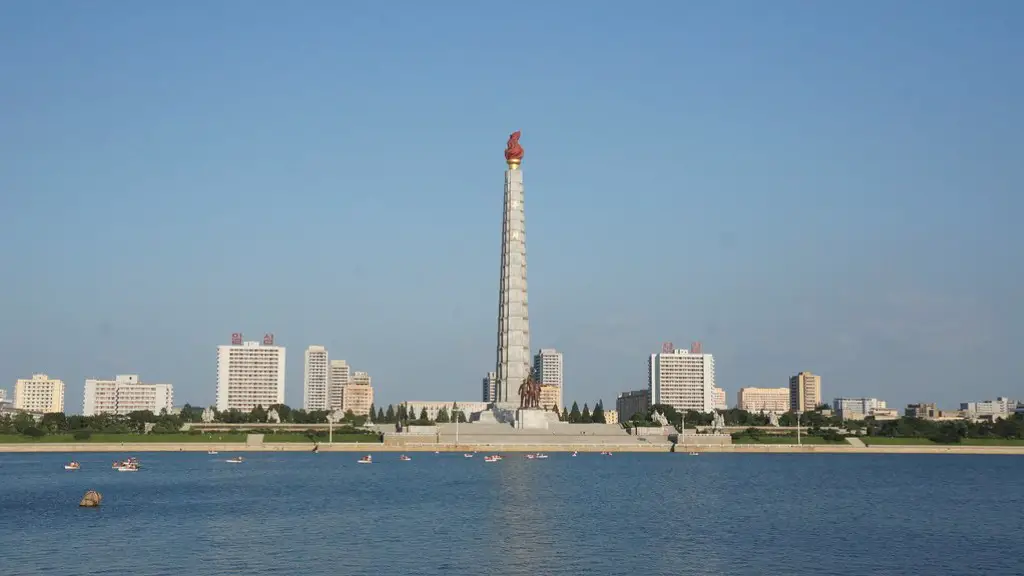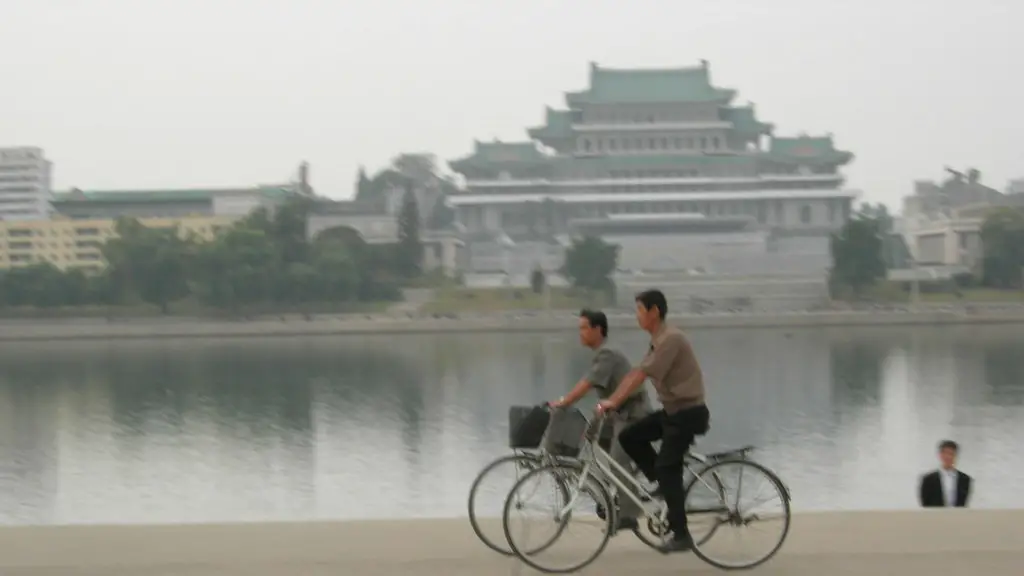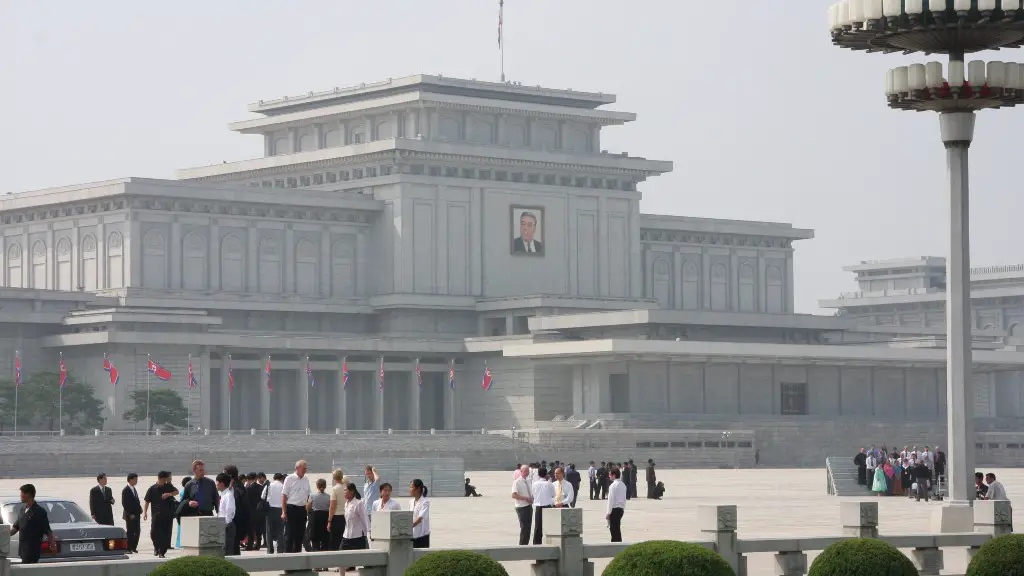North Korea’s history and its view on America
North Korea is a country that’s both feared and misunderstood by many. To understand how North Korea sees America, you need to first understand its history and how it interprets it. North Korea was founded in 1948, after World War II, by Kim Il Sung. The Korean peninsula had been occupied by Japanese forces for 35 years, and was later divided into two when a United Nations-sponsored referendum failed to be held. As a result, the Soviet Union took control of the North, while the US occupied the South. During the Korean War, North Korea and its allies, the Soviet Union and China, fought the US and its allies. In the end, a ceasefire was declared in 1953, resulting in the current state of Korea.
The conflict between North Korea and the US has been a strong influence on how North Korea views America. Kim Il Sung’s policy of Juche, or “self-reliance,” was created in reaction to North Korea’s reliance on outside aid to rebuild the country’s economy and infrastructure after the war. America is often blamed by North Koreans for their country’s current state, as they believe that America’s hand in Korea’s division and its alleged interference in the Korean War have hindered North Korea’s development. This view is further reinforced by a deeply rooted suspicion of the US government and its policies, which have been seen by North Koreans as perpetuating economic inequality and oppression. Another factor to consider is the US’s relationship with North Korea’s regional rivals, such as South Korea and Japan. These two countries are closely allied with the US and serve as a reminder of North Korea’s divided state and emphasise its isolation.
Analysis of North Korea’s narrative
Overall, North Korea’s interpretation of their history and current relationship with the US is heavily biased and inaccurate. All foreign relations are based on the history and geopolitical environment of the two states, and North Korea’s isolation and lack of access to reliable information has only reinforced the government’s narrative. Dr Catherine Nayak, an expert on North Korean relations at the University of California, San Diego, believes that “North Korea has been able to exploit the deeply held mistrust of the US on the Korean peninsula and throughout Asia to legitimise its actions and galvanise support from other nations”. To North Korea’s neighbours, the US is seen as a powerful occupying force and a source of continued economic inequality and oppression.
However, not all of North Korea’s views on America are rooted in paranoia and isolation. A more nuanced explanation of North Korea’s narrative can be found in their recent decision to pursue nuclear arms. Despite the potential consequences, North Koreans believe that having a powerful nuclear arsenal allows them to stand up to the US, which has been seen by many North Koreans as a bully, threatening the security and safety of their nation. As Dr Nayak puts it, “South Koreans see the US as a shield of protection, while North Koreans see the US as a force that needs to be contained.” In this case, the US’s stance against North Korea’s nuclear ambitions acts as a reminder of North Korea’s weak position in the international community.
Reactions of North Koreans towards America
Despite their differences, citizens of North Korea are a lot like citizens of any other country. People have to work hard to support themselves and their families, and many of them have similar dreams and aspirations. However, the tension between their country and America has caused many North Koreans to feel resentment and mistrust towards American citizens. Much of this is due to the way North Koreans have been taught to view the US in school, with Americans depicted as oppressors and the enemy.
When North Koreans travel to other countries, including countries allied with the US, they’re often surprised to see that Americans are friendly, polite and respectful. Despite this, North Korea’s citizens continue to be wary of any interactions with Americans. Dr Nayak points out that “interactions between North Korean citizens and Americans are limited and generally take place within strict rules and guidelines set by the North Korean government. This allows North Korean citizens to maintain distance and distrust towards Americans, ensuring that North Korean citizens do not form any friendships or connections with Americans.”
America’s attempt to rebuild relations with North Korea
In recent years, the US government has attempted to repair its relationship with North Korea. During the Obama-era, the US and North Korea developed better channels of communication, as well as resumed contact with the American embassy in Pyongyang. The US also hoped to use the six-party talks to negotiate the denuclearization of the Korean peninsula. Unfortunately, diplomatic efforts have failed to break the deadlock, as the US and North Korea have failed to come to an agreement due to their diametrically oppositional views on several issues.
As Dr Nayak explains, “The US and North Korea continue to be divided on key issues, such as human rights and denuclearization. These two countries have vastly different interests and are both unwilling to make concessions, making it difficult to make progress.” Despite attempts to reach a solution, the two countries remain in a deadlock, with the US placing pressure on North Korea through economic sanctions and North Korea maintaining its nuclear weapons programme.
Impact of Covid-19
The Covid-19 pandemic has had an impact on the US-North Korea relations as well, but it isn’t clear if it will lead to positive change. Trade between the two countries has been drastically reduced due to the economic repercussions of the pandemic. According to the South China Morning Post, exports from North Korea to the US decreased by 99% in the first quarter of 2020.
The decreased tension has also allowed North Korean officials to meet with US officials multiple times in the past year and discuss the potential of renewed diplomatic talks. However, while the US has expressed willingness to continue diplomatic talks, North Korea has remained firm in its stance on denuclearization. As a result, these talks have failed to produce any meaningful results.
Influence of China
It is also important to note the influence of China in US-North Korea relations. China is North Korea’s longest standing ally, and it has maintained political, economic and military ties with the country for decades. It has also acted as a mediator in the past, and has been able to facilitate dialogue between the US and North Korea, although these talks ultimately failed.
China is also a major factor in the Korean conflict, as it is the only nation with the ability to economically pressure North Korea. In 2017, China provided 90% of North Korea’s total trade, meaning that it has significant sway over how North Korea behaves. For this reason, China’s relationship with North Korea is crucial to improving US-North Korean relations.
Potential Outcomes
Ultimately, North Korea’s view of America is complex, and it is difficult to predict how the situation between the two countries will develop in the future. A lasting peace between the two countries seems unlikely in the short-term, as their differences remain too vast to overcome. It is also difficult to predict the outcome of US-North Korean negotiations, as both sides have failed to come to an agreement in the past.
However, there is still some hope for reconciliation between the two nations. With the US-China relations deteriorating, it is possible that China will be less willing to support North Korea, leading to increased economic pressure for North Korea to negotiate with the US. Furthermore, Covid-19 has allowed both sides to meet and communicate, which could spur progress in negotiations. Only time will tell what the outcome will be.



